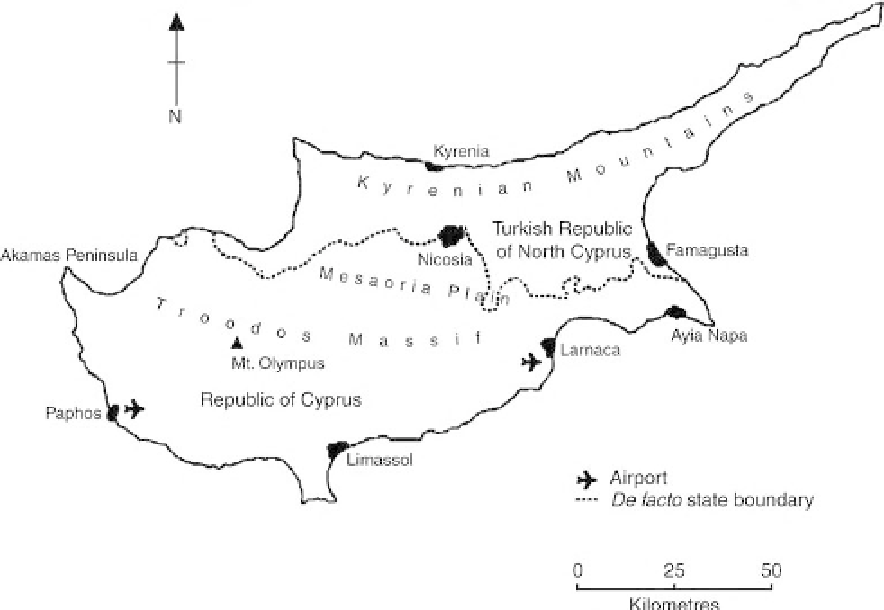Travel Reference
In-Depth Information
Fig. 16.1.
Cyprus: location map with the demarcation line. Source: Alipour and Kilic, 2004.
after
the Cyprus problem had been settled,
and through separate referendums of the two
peoples (Bolukbasi, 1995, 1998).
The Commission's
Agenda 2000
(EC,
1997) confirmed that accession negotiations
would begin as planned and reiterated the
EU's determination to play a positive role in
bringing about a just and lasting settlement in
accordance with UN resolutions. Yet, almost
paradoxically, the timetable agreed for acces-
sion negotiations meant that they could start
before a political settlement was reached, with
the EU arguing that negotiations could stimu-
late the search for a political settlement. If suffi-
cient progress was made between the parties to
allow representatives of the Turkish Cypriot
community to be involved in the accession
process, this would permit a faster conclu-
sion to the accession negotiations. However,
Agenda 2000
indicated that if progress towards
a settlement was not reached before the nego-
tiations were due to begin, they should be
opened with the government of the Republic of
Cyprus as the only authority recognized by
international law.
For its part, the Greek government indi-
cated that Athens would veto the process of
wider enlargement if Cyprus was omitted. It
argued that Cyprus could not be allowed to
become a 'hostage' of Turkey. Further, until the
December 1999 Helsinki Summit, Greece had
blocked moves towards inaugurating accession
discussions with Turkey (Anon, 1998).
Since the end of the Cold War, Turkey's
relationship with Europe had been changing.
Having been a loyal eastern NATO bastion and
crucial listening post, its strategic importance for
the West had declined just at a time when
the EU was forging ahead for economic and
political integration with some of the states
against whom Turkey's NATO role had been
employed. Turkey had also been experiencing
domestic instability concerning the role of
Islam in its society and the rights of its Kurdish
minority population. Until the 1999 Helsinki
Summit there had been growing recrimination
between the EU and Turkey as the latter had
watched former Cold War 'enemy' countries
from
CEE
leapfrog
its
own
long-standing
application for membership.

